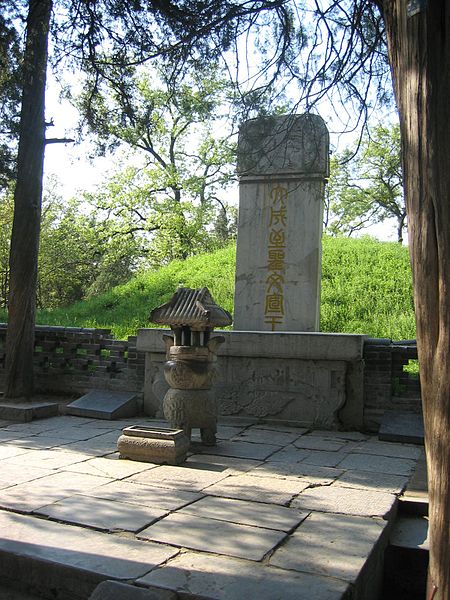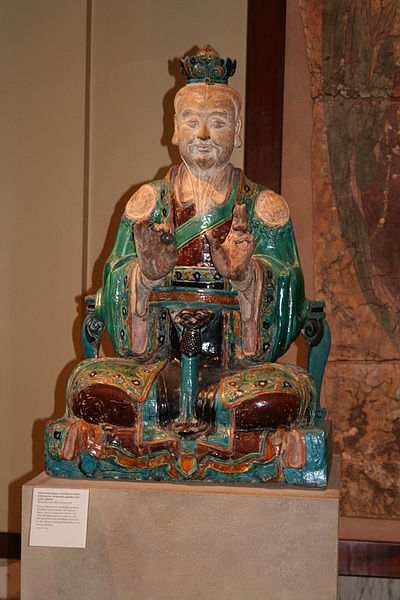Confucius, born Kong Qiu (孔丘), was a Chinese philosopher of the Spring and Autumn period who is traditionally considered the paragon of Chinese sages, as well as the first teacher in China to advocate for mass education. Much of the shared cultural heritage of the Sinosphere originates in the philosophy and teachings of Confucius. His philosophical teachings, called Confucianism, emphasized personal and governmental morality, correctness of social relationships, justice, kindness, sincerity, and a ruler's responsibilities to lead by virtue.
Tang-era depiction of Confucius by Wu Daozi (685–758)
Tomb of Confucius in Kong Lin cemetery, Qufu, Shandong
The Analects
The Shijing or Classic of Poetry
Chinese philosophy originates in the Spring and Autumn period and Warring States period, during a period known as the "Hundred Schools of Thought", which was characterized by significant intellectual and cultural developments. Although much of Chinese philosophy begun in the Warring States period, elements of Chinese philosophy have existed for several thousand years. Some can be found in the I Ching, an ancient compendium of divination, which dates back to at least 672 BCE.
Yin and Yang symbol with the bagua symbols paved in a clearing outside of Nanning City, Guangxi province, China
Kong Fuzi (Latin: Confucius)
Chinese glazed stoneware statue of a Daoist deity, from the Ming dynasty, 16th century
The Sakyamuni Buddha, by artist Zhang Shengwen, 1173–1176 CE, Song dynasty








